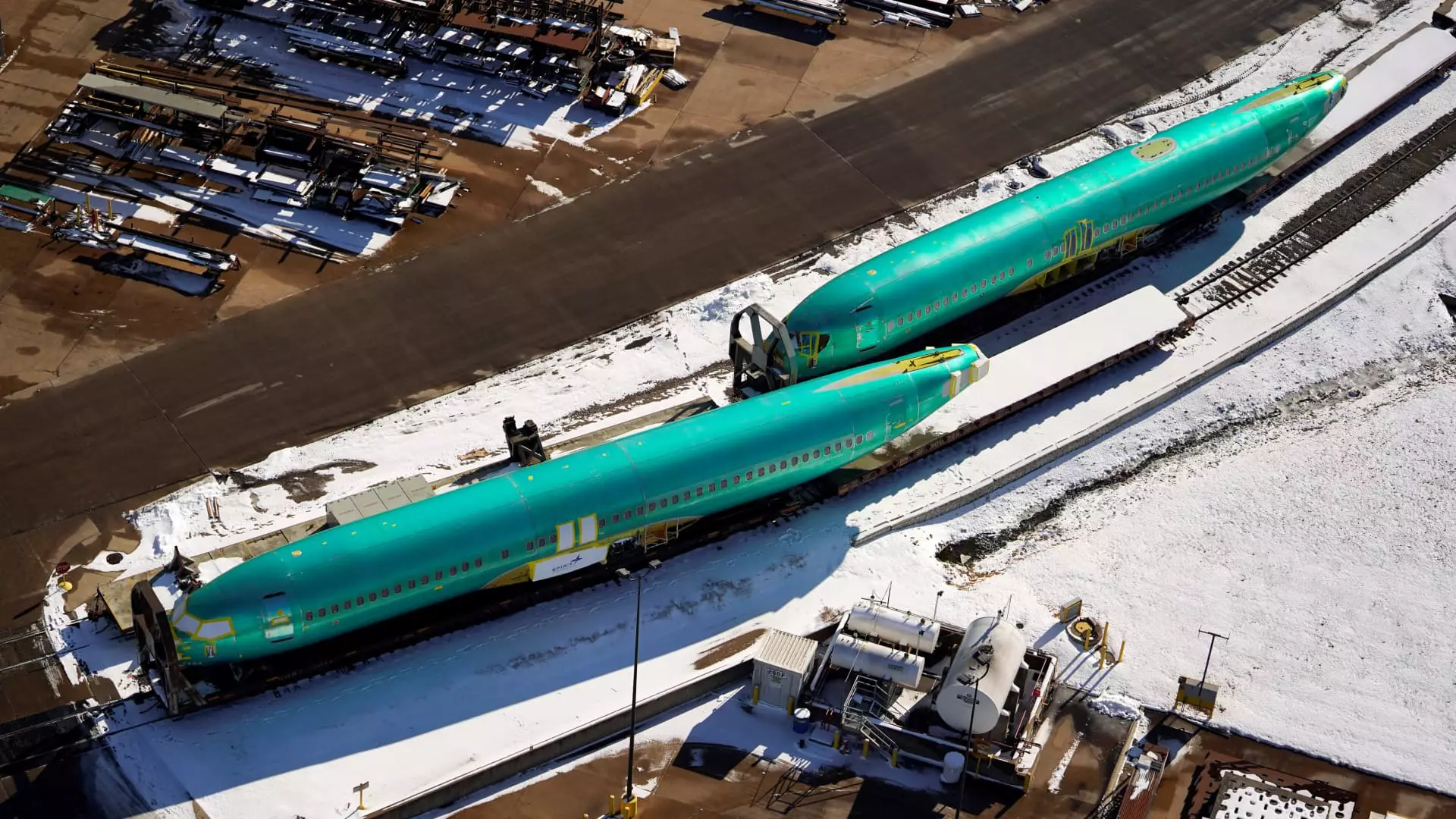As Boeing grapples with a striking workforce, the ripple effects are being felt throughout its supply chain. Spirit AeroSystems, a key supplier to Boeing, has announced the furlough of approximately 700 employees owing to an ongoing strike by machinists, which has now extended into its sixth consecutive week. The significant downsizing at Spirit reflects broader issues within Boeing, where more than 32,000 workers halted operations on September 13 after rejecting a proposed labor agreement. The situation has churned the waters for Boeing’s newly appointed CEO, Kelly Ortberg, who must navigate a turbulent environment marked by financial strain and operational delays.
The furloughs, affecting about 5% of Spirit AeroSystems’ U.S. workforce, are concentrated in their largest manufacturing sites located in Wichita, Kansas. A spokesperson for the company, Joe Buccino, indicated that should the strike persist beyond November, there could be a necessity for more extensive layoffs. This alarming possibility speaks volumes about the escalating challenges that both Spirit and Boeing face as they strive to manage costs amidst diminishing revenues.
The financial health of Boeing is compelled to undergo a thorough examination, especially since Ortberg, who took leadership just a couple of months ago, is poised to discuss the company’s performance with investors in his first earnings call. His recent initiatives to curtail expenses, including a dire proposal to reduce the workforce by 10%—effectively impacting around 17,000 employees—signal a desperate attempt to stabilize the company’s financial footing.
Moreover, Boeing is also signaling a dramatic shift in its production strategies. The company plans to cease operations on the 767 commercial aircraft once current orders are completed by 2027 and has delayed the much-anticipated introduction of the 777X wide-body jet until 2026. These adjustments reflect the introspective evaluation the organization must undertake amidst external pressures.
Despite some inventory buildup for the 777 and 767 programs, the ongoing strike has stalled work on these initiatives. Notably, Spirit’s involvement in constructing components for Boeing’s high-demand 737 Max seems to be insulated from the current furloughs, indicating a selective impact from the labor disruption.
The acquisition of Spirit by Boeing, projected to finalize in mid-2025, further complicates matters. Investors and employees alike are left questioning the long-term viability of this merger amid ongoing labor strife and production challenges. As Boeing seeks to enhance its financial liquidity by possibly raising debt or equity, the ramifications of labor disruptions may influence not only corporate strategy but also the perception and loyalty of its workforce.
The cascading effects of the machinists’ strike on Boeing and its suppliers are far-reaching. As Spirit AeroSystems implements furloughs and contemplates more extensive layoffs, the focus remains on how Boeing will navigate this environment of uncertainty and unrest. The forthcoming months will be critical, both for the companies directly involved and the industries that depend on the health of the aerospace sector.


Leave a Reply